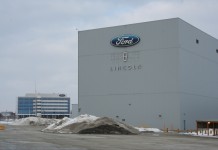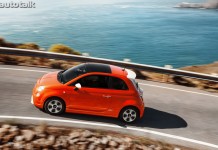Admiration for Sergio Marchionne, the dynamic boss of Italian automaker Fiat, is giving way to grumbling as unions and the government question some of his more aggressive decisions.
The Canadian-Italian credited with rescuing the Italian icon from the brink of bankruptcy in 2005 has come under fire recently for his “irreversible” decision to shut down Fiat’s Termini Imerese factory in Sicily.
As workers called a four-hour strike over that decision next Wednesday, Fiat announced Tuesday it will halt production at all Italian plants for two weeks from February 22 because of a fall-off in orders.
Guglielmo Epifani, secretary general of Italy’s largest labor union CGIL, said the move, which will temporarily lay off some 30,000 workers, threw “fuel on the fire.”
Other unions say the temporary layoff is aimed at pressuring the government to extend a “cash-for-clunkers” scheme.
On Monday, Fiat said it could return to profit this year, after a heavy loss in 2009, only if European governments continued such incentives allowing consumers to trade in petrol-guzzling cars for more fuel-efficient models.
Economic Development Minister Claudio Scajola said the decision by Italy’s biggest private employer “doesn’t seem appropriate,” also expressing surprise at not having been informed of the move.
The Italian Catholic Church also weighed in, asking that the “voices of families losing jobs be heard.”
Marchionne dismissed the criticism, saying: “We are the biggest investor in Italy but we are not the government.”
Marchionne’s positions are a novelty in Italy, where Fiat was run for decades by the dynastic Agnelli family — “Italy’s Kennedys” — and was traditionally close to the government.
Giuseppe Berta, professor at Bocconi University in Milan and an expert on Fiat’s industrial history, said Marchionne “wants to distance himself as much as possible” from Italy’s political and social debate.
“It’s a break with history,” Berta told AFP.
Marchionne may be expressing his Canadian side but he is also demonstrating to the United States — after acquiring a 20 percent stake in the ailing US giant Chrysler last year — “that he is capable of shutting down a factory in Italy,” Berta said.
The Fiat boss, who also became Chrysler’s CEO, failed to calm the unions’ ire with assurances that he would move the Fiat Panda production line from Poland to Pomigliano, in southern Italy.
Italians, whose national pride was stoked by the Chrysler deal, are now wrestling with the “uneasiness, widespread and legitimate, that he (Marchionne) might pay less attention to Fiat,” Scajola said.
Little known in 2004 when he took the helm of a Fiat then on the verge of collapse, Marchionne quickly won over the media, unions and politicians by turning the company around without massive job cuts.








